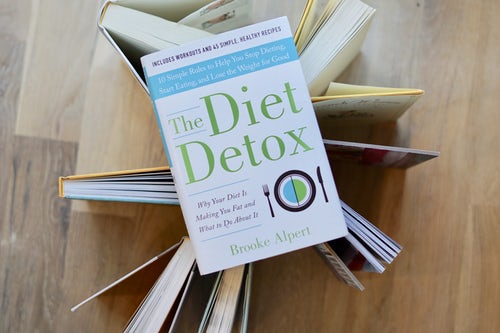Here on the Workout Wednesday edition of my blog we’ve been talking a lot about how you successfully make it through the holidays health-wise with careful, healthful food selections.
But I have a question for you?
Are you so fixated on “healthy eating” that you’re in danger of being obsessed with it, and close to damaging your own well-being?
If you didn’t think focusing on healthful and clean eating could be a problem, think again.
Being so healthful and clean eating focused might land you a diagnosis of what behavioral scientists call “orthorexia,” although the term is not yet officially recognized in the Diagnostic and Statistical Manual.
Awareness of this disorder—an obsession with proper or “healthful” eating—is on the rise, though.
Identifying orthorexia—
Some of the hallmarks of orthorexia include:
- Unusual interests in the health status of what others are eating. (You know, like the person who’s always evaluating everyone else’s food choices.)
- Spending hours per day thinking about what food might be served at upcoming events.
- Showing high levels of distress when “safe” or “healthful” foods aren’t available.
- Obsessive following of food and “healthy lifestyle” blogs or articles on social media sites or in health and exercise magazines.
- Compulsively checking ingredient lists and nutritional labels.
- Eliminating an increasing number of food groups—like sugar, all carbs, all dairy, all meat, all animal products—from your diet.
- A psychological inability to eat anything but a narrow group of foods you’ve deemed healthy or pure.
But unlike anorexia or bulimia, concerns about body image may or may not be present.
Yet like an anorexic, an orthorexic is prone to malnutrition because she is likely to restrict the amount and variety of foods she eats. Because of this, anorexia and orthorexia share many of the same physical health issues.
Orthorexia treatments—
Although there are no clinical treatments designed specifically for orthorexia, “many eating disorder experts are treating orthorexia as a variety of anorexia and/or obsessive-compulsive disorder (OCD).”
I think that makes sense because the definition of the disorder indicates the person is driven to exert unbending control of the kind of food they’re eating. Like other eating disorder sufferers, they’re obsessed about food eating, healthful eating in particular.
And being focused (obsessed) on healthful eating 100% of the time doesn’t always equate to having a healthful (balanced) lifestyle. It seems that you might just be too tipped in one particular direction. And rigid in your thinking and behavior.
There are some treatment techniques, which include:
- Psychotherapy to help the patient increase the variety of foods eaten.
- Exposure to feared foods that stimulate or provoke anxiety. (This is also a treatment technique for anxiety and phobias.)
- Weight restoration protocols. (I would guess that the psychologist would enlist the help of a registered dietician for this too.)
Can you identify?
Concerned you or a loved one may suffer from orthorexia? If so, you might be interested in the following.
For more information, watch the brief YouTube video about “The Dangers of Dieting and Clean Eating” produced by the National Eating Disorders.
Take the eating disorder assessment—
And if you are concerned about your eating habits or the possibility that you may suffer from an eating disorder, you can take this on-line assessment. nationaleatingdisorders.org/screening
Don’t be a slave to your food!
Eating disorders can rob your holidays (and daily life) of joy and peace and good health. They affect the quality of your life. As the registered dietician says in the video, they hamper or curtail your spontaneity. And that can make life dull and rigid.
As I used to counsel my patients, everything in moderation, including moderation.
I think you get the point. Unless you’re really allergic to a certain food, (or consuming certain foods sends your body into reactive contortions), I think it’s okay to occasionally bend your own eating rules.
I’m not advocating for turning your back on organic, healthful foods prepared without preservatives and with minimal to no sugar, etc., etc. What I am encouraging you to do is to “let your hair down a little” as the old saying goes.
And stop eyeballing everyone else’s food choices with a critical eye.
I think you really will enjoy life more! And if your body is in a healthy state, it will be less likely to react negatively to an occasional break from perfect.
Until next week,
Have a joyous Christmas!!
And enjoy your feasts!
WoBlessings,
Andrea
May you prosper in all things and be in health, just as your soul prospers (3 John 2).
